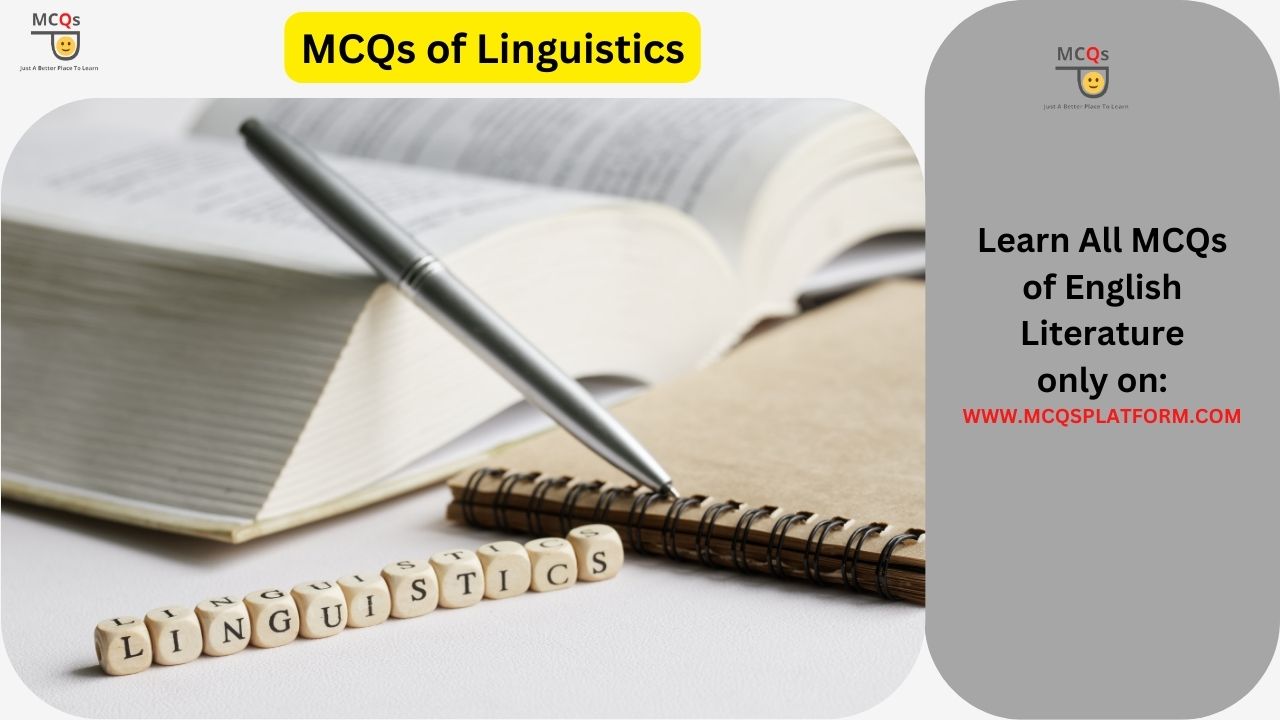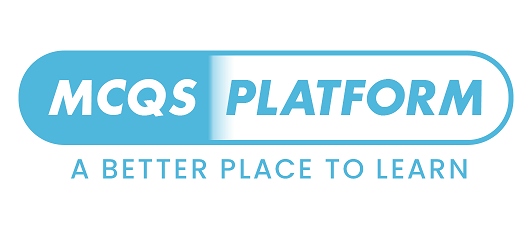
Linguistics has an exceptional weightage in English Literature. If you are interested in exploring the MCQs of Linguistics, these will help you qualify for English Literature Tests. These MCQs focus on scientific language analysis, language formation, and language use functions. Similarly, this section analyzes the fundamental branches of linguistics, including phonetics, phonology, morphology, syntax, semantics, and pragmatics. Linguistics research is conducted on language development, communication practices, and cultural and social impacts. For competitive exams or tests, you need to master the essential MCQs of linguistics completely because they represent the core aspects of language research study.
You can access all fundamental English Literature MCQs in the English Literature section of the MCQs Platform. All MCQs will be uploaded to the platform, which allows users to practice and memorize them through quizzes. This study will strengthen your understanding of Linguistics both as a subject field and in language studies, analysis, and communication.
Most Repeated MCQs of Linguistics
Q. Who was considered the ‘Father of Linguistic’, a Swiss guy, who authored the seminal book entitled ‘Course in General Linguistics’
a) Noam Chomsky
b) William James
c) Ferdinand de Saussure
d) Leonard Bloomfield
Q. What is the name of the linguistic school, which attempted to uncover ‘Discovery Procedures’, that are internally imbedded, and compose the underlying units of language
a) Structuralists
b) Transformationalists
c) Phenomenologists
d) deconstructionists
Q. Since language is arbitrary, but contain ‘Permitted Moves’…what term best describes the system of this communicational system
a) Managed
b) Deviant
c) Structured
d) games
Q. What three components, generally, make up a system of a typical language
a) semiosis syntax frames
b) phonology syntax semantics
c) frames semantics utterances
d) sign sign signs
Q. What is the smallest segment of sound, that comprises the basic building blocks of a language
a) Phoneme
b) Metameme
c) Morpheme
d) terameme
Q. What is the term for unchanging, gliding vowels, which can be either consonant-based or vowel-based
a) complementary variant
b) variations
c) diphthongs
d) morpheme pairs
Q. The morpheme is the smallest syntactical unit. How many morphemes would the word ‘antidisestablishmentarianism’ have
a) 1
b) 6
c) 7
d) 5
Q. Which of the following is not a breed of Morpheme, found in most languages
a) Derivational
b) Strange
c) Free
d) inflectional
Q. What are the two main structures, found when deconstructing a sentence into a tree-diagram
a) s prepositions
b) np vp
c) verb clause and prepositionals
d) determiners and deictics
Q. After, we analyze the syntactical order and construction, and find it worthy of our ‘Permitted moves’, does it mean that it will convey an idea cogently to us
a) Yes
b) No
c) In Between
d) There are some chances
Learn MCQs of Literary Terms
